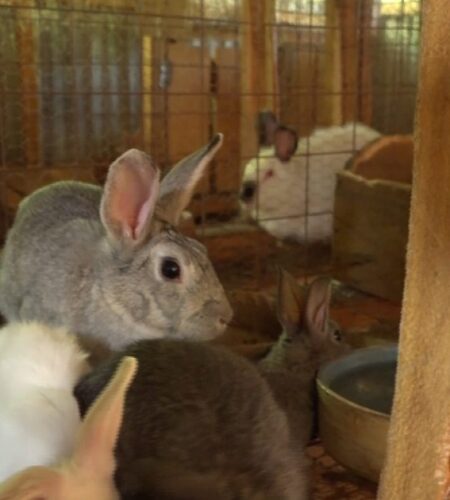Dispelling Myths Around Rabbit Farming in Igembe South.
A livestock officer in Igembe South sub-county has urged residents to abandon long-standing myths about rabbit farming and consumption, encouraging them to embrace it for its numerous health, economic, and agricultural benefits.
Overcoming Myths and Misconceptions
Benjamin Inanga Koome highlighted that myths and misconceptions have been a significant obstacle to adopting rabbit farming in the region. He explained that many believe rabbits are merely pets for young boys and equate eating rabbit meat to consuming rodents.
He dismissed these beliefs as unfounded myths that should be eliminated. Koome emphasized that rabbit meat is one of the healthiest protein sources, being low in cholesterol and rich in essential nutrients like vitamin B12 and omega-3 fatty acids, which help prevent lifestyle diseases.
Compared to red meat, rabbit meat is leaner, making it ideal for individuals managing conditions such as cardiovascular diseases.
Economic and Agricultural Benefits
Koome encouraged residents to view rabbit farming as a lucrative business opportunity. He noted that besides meat, rabbit by-products such as skin, urine, and manure are highly marketable.
Rabbit droppings, he explained, make excellent organic fertilizer that enhances soil fertility and improves crop yields.
Additionally, rabbit urine acts as a natural pesticide, repelling pests like caterpillars and reducing the need for chemical pesticides in farming.
Minimal Requirements for Rabbit Farming
The livestock officer pointed out that rabbit farming requires minimal space, consumes less feed compared to other livestock, and involves rapid reproduction.
He advised residents interested in commercial farming to consider breeds such as the New Zealand White, Californian White, and Flemish Giant, which are renowned for their adaptability, high growth rates, and quality meat production.
Best Practices for Rabbit Farming
Koome clarified that rabbits require a well-structured hutch with proper ventilation. The hutch should be raised above the ground to protect the rabbits from pests and predators. Regarding feeding, he explained that the diet varies with the rabbit’s age.
Growers benefit from high-quality pellets supplemented with leafy greens, while adults thrive on hay for digestion and vegetables like kale and carrots, which should be free from chemicals.
High Demand and Extension Services
The officer emphasized the growing demand for rabbits and their by-products, urging residents to take advantage of this opportunity. He reassured them that his office is available to provide extension services on feeding programs and proper housing for rabbits.
ALSO READ: Presidential Awardee Leads Tree Planting Campaign in Homa Bay
He reiterated that rabbit farming is a modern, profitable, and sustainable venture, countering cultural myths that portray it as a juvenile activity or taboo. Koome concluded by urging residents to embrace rabbit farming and reap its benefits.
Rabbit Farming: Livestock Officer Challenges Common Myths


Comments